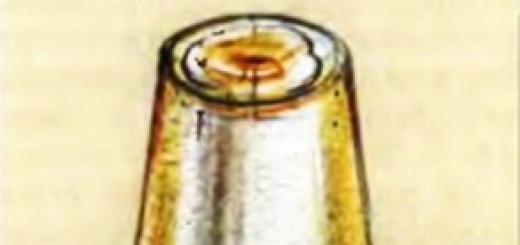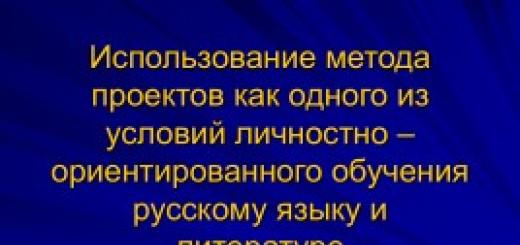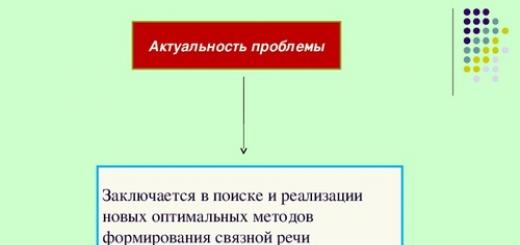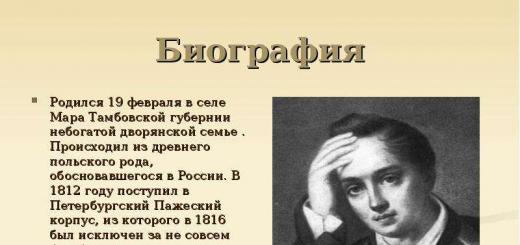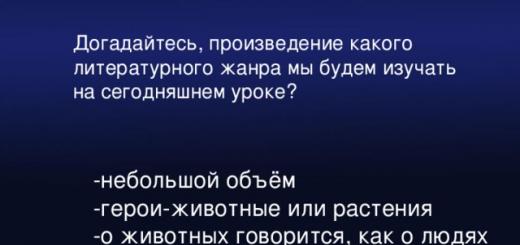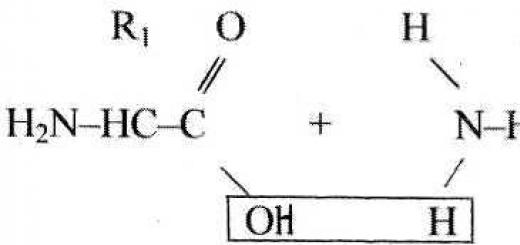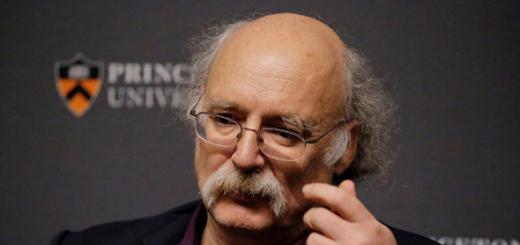It is very important that children develop love and respect for the personality of the great poet from a very early age. Gabdulla Tukay is not just a great poet, but a symbol of the history and fate of the entire Tatar people. Even today he teaches us and our children to understand this complex world with all its troubles and worries.
Download:
Preview:
Pedagogical project “Creativity of G. Tukay”
Relevance of the project:Today the question of what to read to children is especially relevant. The child's reading range must be correctly formed.
It is the creativity of Gabdulla Tukay that will help solve this problem. Tukay left a huge creative legacy, and poetry occupies the largest and most important place in it.
The inexhaustible interest of children, teachers and me personally in his poetic and fairy-tale creativity prompted me to create the project “Creativity of G. Tukay”. The project “Creativity of G. Tukay” is aimed at introducing preschoolers to the work of G. Tukay, increasing the reading culture of children, parents and educators. He considers access to the cultural heritage of the Tatar poet G. Tukay. In his works you can find answers to many questions of today.
It is valuable that Tukay’s works are imbued with a deep love for his native land, its nature, his creative heritage from generation to generation instills in children love and respect for their home, their native land, teaches them to value hard work, patience, and lays the foundations for an aesthetic perception of the world. It is impossible not to note the pedagogical and educational motivation in the poetry of G. Tukay, associated with children's literature.
It is important that through his works children learn the traditions of the Tatar people, their foundations: deference, respect for elders, kindness and responsiveness. They contribute to the formation in children of such valuable character qualities as hard work, honesty, courage, modesty, responsibility, and instill an interest in school and knowledge.
It is also important to promote the poet’s work and cultivate a caring and reverent attitude towards the native language.
1. working with children,
2. work with teachers,
3. work with parents.
Project participants:children of middle and senior preschool age (from 4 to 7 years), teachers (educators, music directors, Tatar language teacher), parents of pupils.
Implementation period: month of April.
Project type : educational, creative.
Target:
Tasks:
- introduce children to the life and work of Gabdulla Tukay;
- cultivate love and respect for the works of Gabdulla Tukay;
- to form in children honesty, truthfulness, kindness and responsiveness, love for the Motherland through the works of Gabdulla Tukay;
- teach to understand and feel the figurative language of poems and fairy tales by Gabdulla Tukay;
- expand parents’ ideas about Tatar children’s literature and involve them in family reading of literary works.
Expected results:
- creating the necessary conditions in a kindergarten, group, family to familiarize preschoolers with the works of Gabdulla Tukay;
- development of children's curiosity, creativity, cognitive activity, and communication skills;
- active participation of parents;
- Parents' understanding of the importance of family reading.
Project implementation stages:
Stage 1 preparatory
- discussion of the goals and objectives of the project; literature search;
- creating the necessary conditions for the implementation of the project;
- approaches to interaction with teachers and parents.
Stage 2 main
- improvement of the subject-development environment in preschool educational institutions (book corners, information stands);
- conducting educational activities with children to familiarize them with the life and work of Tukay;
- work with parents;
- creating conditions for implementation;
- accumulation and development of teaching materials.
Stage 3 final
- a holiday dedicated to the work of G. Tukay.
Plan for working with children
Event | Goals | Deadlines | Responsible |
|
Organize a library in the group “G. Tukay, everything about him" | Develop interest in the books of Gabdulla Tukay. | 1 Week | educators |
|
Evening readings “Journey through the books of Tukay” | Introduce children to the books of G. Tukay | 1-4 week | educators |
|
Reading the works of Tukay “Mother Tongue”, “Baby and the Moth”, “Funny Student”, “Poor Hare”. | Encourage children's interest in fiction. Learn to understand the idea of the work. | 2 week | educators |
|
Musical activity: learning songs “Tugan Tel”, “Karlygach”. | Develop song creativity, listen to each other; | 1-4 week | Music leader, Tatar language teacher |
|
Artistic creativity (drawing) based on the works of G. Tukay “My favorite fairy-tale hero” | Fix the work of G. Tukay. Evoke a feeling of joy and desire to make the composition colorful. Develop the ability to work together. | 3 week | Teachers, parents |
|
The action “We read the poems of Gabdulla Tukay” is a recitation competition. | To cultivate in children such qualities as: hard work, responsiveness, respect through educational poems and fairy tales by G. Tukay. | 3 week | ||
Viewing cartoons based on the works of G. Tukay. | To stimulate children's interest in Tatar cartoons. | 1-4 week | Educators |
|
Listening to audio recordings of G. Tukay's fairy tales. | To instill in children an interest in the works of G. Tukay. Learn to perceive the figurative content of works. | 1-4 week | educators |
|
A holiday dedicated to the work of G. Tukay | Summarize children's knowledge of the works of Gabdulla Tukay. | 4 week | Teachers, music leader, teacher of Tatar language |
Plan for working with educators.
Events | Goals | Deadlines | Responsible |
|
Discussion with teachers | Discuss the goals and objectives of the project. Generate interest in creating conditions for the implementation of the project. | 1 Week | Teachers, parents |
|
Methodical piggy bank | Development and accumulation of methodological materials, developments, recommendations for introducing children to the works of G. Tukay | 1-4 week | Teachers, Tatar language teacher |
|
Selection of books on the works of Tukay. | To develop children's interest in Tukay's works. | 1 Week | Teachers, librarians |
|
Consultation for educators “How to introduce children to the life and work of G. Tukay” | Introducing children to the works of Tukay | 1 Week | Tat language teacher |
|
Campaign “We Read Books” Tukay" | To attract children's attention to the books of Gabdulla Tukay and to reading. | 2 week | educators |
|
Exhibition “All about Gabdulla Tukai” | Summarize and demonstrate the material accumulated in the work. | 3 week | educators |
Working with parents
Events | Goals | Deadlines | Responsible |
|
Questioning of parents on the study of reading books by Gabdulla Tukay | Explain whether parents read books to their children. What children like to listen to. | 1 Week | educators |
|
Consultations: “What do Tatar cartoons teach?” “We recommend reading books by G. Tukay” | Parent education. | 3 week | Educators |
|
Campaign “Reading Tukay’s books” | To attract parents to the books of G. Tukay and to reading. | 2 week | Teachers, parents |
|
Memo “How we make friends with books” | Keep parents interested. | 4 week | Teachers, librarians |
Final event:
A holiday dedicated to the work of Gabdulla Tukay.
Target: Increasing the effectiveness of work to introduce children to the works of Gabdulla Tukay.
Tasks: Introduce children to the life and work of G. Tukay. To develop honesty, truthfulness, kindness and responsiveness in children through the works of G. Tukay. Learn to understand and feel the figurative language of poems and fairy tales by G. Tukay. To cultivate love and respect for the works of G. Tukay and the ability to enjoy the artistic word, the ability to use it in one’s own speech.
Hall decoration:portrait of G. Tukay, flowers.
Quotes in Tatar and Russian:
“Oh, my native, melodious language! Oh parent speech!
The children enter the hall to the music.
Leading: Many, many years ago, on one sunny spring day, on April 26, 1886, the great Tatar poet G. Tukay was born. Today we have gathered to remember and honor the memory of the Tatar poet G. Tukay.
1 child: Oh, my native, melodious language! Oh, parent speech!
What else in the world did I know, what did I manage to save?
2nd child: Oh, my tongue, we are forever inseparable friends.
Since childhood, your joy and sadness have become clear to me!
Leading: The song “Tugan Tel” is the folk anthem of the entire Tatar people.
Children sing the song “Tugan Tel” in the Tatar language.
Leading: The fate of Tukai was difficult. He was orphaned very early and wandered from his loved one to another. His childhood was very difficult. But Tukay grew up as a smart, diligent child; he learned to write, read and compose poetry early.
A child sings the song “Elli-belly beu” (lyrics by G. Tukay)
Leading: G. Tukay urged us to love our Motherland, our native language, our people. He said that the Tatar people would find their happiness only in the land of their fathers, in unity with the Russian people.
Child: We sang songs with the people
There is something common in our everyday life and morality.
Our friendship cannot be broken forever
We are strung together to be one.
Russian dance
Music sounds and Shurale enters the hall.
Shurale: My fingers hurt
I pinched them a year ago.
Oh, I’m going to die - such a disaster
I'm not happy with my life.
Leading: Shurale, you wanted to do evil, so you were punished.
Shurale: I won’t touch anyone now - I swear on your soul.
Leading: Play with us and your pain will go away.
Shurale: Do you children really want to play with me?
Game "Shurale" (caught children recite poems: “Funny Student”, “Gali and the Goat”)
Shurale: Thank you! In my forest they said that only children could help me. And it turned out to be true. I will never offend anyone again. And now it’s time for me to return to the forest, where my friends are waiting for me.
Leading: In one village there lived one woman. She had a large farm. There were a lot of hens and chickens in it.
"Chick Dance"
Leading: This woman had a son. My son loved to go fishing. One day he took a fishing rod and went fishing.
Boy: Will there be a catch or not?
Song "Bala belen kubelek"
Boy: Ugh, it's hot! We need to take a swim.
Leading: The boy begins to undress, at this time, Vodyana appears on the bridge. She sits and combs her hair with a golden comb. The boy hides behind the bushes and looks out with fear. The water girl sings a song and jumps into the water. The boy, looking around, approaches the bridge and grabs the comb and runs away.
Water: Stop, stop! Give me my golden comb. Why did you take it? After all, he is not yours!
The boy runs to the village, and the merman runs away.
Boy: Mom mom! Look, I found a golden comb, beautiful.
Mother: Why did you take it? He's not yours!
Leading: The sun has set. Okay, let's go to bed, the day has died down. Knock, knock!
Someone is knocking on our window.
Mother: Who's there? Who doesn't let you sleep at night?
Water: It's me! During the day, your thief son stole my golden comb.
Mom throws the comb out the window.
Mother: Oh son, what have you done?
Boy: Forgive me mom, I won't do this again.
Water: You cannot take other people's things without permission. How does this sound in a fairy tale?
Boy: Whether there is an owner or not, I won’t take someone else’s forever.
Tatar dance.
Leading: With this, the holiday dedicated to G. Tukay came to an end. Love your Motherland, read Tukay’s poems and fairy tales.
Song "Sunny Land"
Author of the project
Khairullina Tanzilya Tagirovna
Project name
"Gabdulla Tukay - 125th anniversary of the great Tatar poet"
Project business card
Brief summary of the project
In order to perpetuate the memory and creative heritage, in honor of the 125th anniversary of the great Tatar poet Gabdulla Tukay, the President of the Republic of Tatarstan Rustam Minnikhanov on February 11 signed a Decree declaring 2011 the Year of Gabdulla Tukay in the Republic of Tatarstan. Today the question of what to read to children is especially relevant. The child's reading range must be correctly formed. It is the creativity of Gabdulla Tukay that will help solve this problem. Tukay left a huge creative legacy, and poetry occupies the largest and most important place in it. April 26, 2011 marks the 125th anniversary of the great Tatar poet Gabdulla Tukai. The inexhaustible interest of children, teachers and me personally in his poetic and fairy-tale creativity prompted me to create a project. Goals and objectives of the project: To introduce children to the life and work of Gabdulla Tukay. To cultivate love and respect for the works of Gabdulla Tukay. To develop honesty, truthfulness, kindness and responsiveness in children through the works of Gabdulla Tukay. To cultivate the ability to enjoy the artistic word, the ability to use it in one’s own speech (proverbs, sayings, folk sayings). Learn to feel and understand the figurative language of poems and fairy tales by Gabdulla Tukay. Expand parents’ ideas about Tatar children’s literature and involve them in family reading of literary works.
Fundamental question, problematic issues of the project
How can someone live outside of time (experience their time)? In what form have the works of the great Tatar poet G. Tukai reached us? How deeply did the poet’s work influence modern Tatar literature?
Project plan
Introductory presentation; Distribution of students into groups; Questionnaire; Project presentation; Exhibition of books by G. Tukay; Collective reading of the poet's works; Carrying out the test.
Teacher introductory presentation
Tukay’s creations inspired artists, musicians, poets, and writers to create works of art. His poems became truly popular, the lines formed the basis of catchphrases and aphorisms. They, along with the suras of the Koran, carried their Word in shamails, turned into music, personifying “mon” - the soul of the people... Every nation in one era or another gives birth to its own Poet, whose mission is to become the personification of its genius, soul. In Ancient Greece he was Homer, in medieval Italy - Dante, in England - Shakespeare, in Germany - Goethe, in Russia - Pushkin. For the Tatar people, Tukai became such a poet, whose poetry sounded in unison with the strings of the people's soul. Tukay went down in the history of Tatar literature as a great poet who laid the foundation for a new national poetry, as one of the founders of the modern Tatar language. The poet's creative activity lasted only eight years. He died at the age of 27, leaving behind over 10 thousand poetic lines (more than 400 poems, 9 poems), about 50 sheets of prose (350 stories, essays and memoirs). Tukay. Gabdulla Tukaev. Who is he for us? This is a folk poet who, it seems, entered our consciousness almost with mother’s milk. The Tatars recognize him so early. But it is close not only to the Tatars: to all Turkic peoples. both Russia and the whole world revere him as their poet. Tukay's poems and poems have been published in dozens of languages of different continents.
For the Tatars, the work of this poet is what the work of A.S. Pushkin is for the Russians. True, in recent years they have spoken and written more about the work of the heroic Musa Jalil. Of course, his creations are very valuable to us. But he is a poet of his era - Soviet, Bolshevik. We were brought up on the works of Soviet proletarian writers and poets: A. Tvardovsky, M. Sholokhov, M. Jalil and many others. They shaped our mentality. Tukay is more multifaceted and extensive. He is not only a poet and writer, but also a publicist. His work is imbued with the classics of medieval Tatar and world poetry of the 19th century, politics and philosophy of the era of the early 20th century.
Tukay died in 1913 very young, having lived only 27 years. But each of his years would be worth 10 years of the life of another poet. He was so hardworking and fruitful. How much more he would have created if he had lived longer!
And he was born in the village of Kushlavych, Kazan province in 1886. He was orphaned very early and was raised either by distant relatives or even by complete strangers. It would be unnecessary to remind how many hardships in life the boy experienced, deprived of his mother’s love and father’s care and protection from early childhood. Wasn't this one of the reasons for his early death? Nevertheless, thanks to his insatiable desire to know the world, he managed to graduate from a madrasah, equivalent to a university, and get an education at a Russian school, which was a rarity for Tatar youth at that time.
Reading his works, getting acquainted with his work, you understand that life treated him so harshly that he matured very early, and by the age of 17-18 he had already become not only a poet, but also a Citizen with an established worldview, with his own views and thoughts about society. Moreover, a citizen who actively influences the minds and feelings of people through his poems, poems and journalism.
What did Tukay write about? His works contain, of course, lyrics, including love, and satire on everything that happened in the life of Russia and the city of Kazan at that time, and much more. He boldly exposed and ridiculed everyone whom he considered hypocrites and tricksters because they turned their calling and activities for the revival of the Tatar nation into a personal business.
It is surprising that “Mr. Tukaev,” as this very young poet was called, had the outlook of a mature man, a politician, a statesman. He reacted sensitively to the fateful events of the turbulent times of 1905-13. This era of the birth of democracy in Russia and the emergence of parliamentarism. And then the years of reaction that followed. All the facts of those days are reflected in his poems, passing through the prism of Tukaev’s special worldview.
Tukai also touched on the national issue in his works, rightly complaining about the bitter fate of the Tatar people. Bitterness and pain for his people are present in his poems: “Shurale”, “Par at”, “Alluki” and others. It is not without reason that people have composed numerous songs based on his poems. And the song “Tugan Tel” is actually the national anthem of the Tatars. In general, national themes occupied a significant place in the work of Gabdulla Tukay.
However, the globalism of mentality did not allow Gabdulla Tukai to “get hung up” only on nationalism, albeit good and fair, he rose to the height of understanding of all-Russian and world problems. Here is what he writes about this in the poem “The Hopes of the People in Connection with the Great Jubilee,” dedicated to the 300th anniversary of the Romanov dynasty: ...Here in Russia we are noticeable, There is our mark.
Purely our mirror of fate,
There are no stains.
Sang with the Russians
Your life like a nightingale,
Power changed and kings
With a spear, with a club...
(all quoted passages of poetry are translated by the author of this material).
He is concerned about the same problems as all Russians, all of humanity: the unsettled life of people, poverty, overcrowding, and so on. His words about injustice and the sad fate of people cannot but shock:
…Autumn. Night. Can't sleep. Wind
Howls and cries outside the window.
No, not the wind: people are crying,
Feeling hunger, death all around.
There are rich old women there
Drowning in gold
But in someone else's.
Here is a hungry girl
Crying over a piece of rye...
(verse “Spring Winds”)
The political events of the early 20th century are reflected in many of his poems. As an example, we give a fragment of the poem “To the State Duma” (it was sung among the people to the melody of one comic song). It conveys the feeling of disappointment of the Russian people in the work of the first parliament of Russia, which never set itself the task of improving the lives of ordinary people:
...The most important general
I showed you the cookie.
Oh, cutie, - Duma, Duma,
It turns out you are sitting in vain.
She promised freedom, land,
Where is the freedom, where is the allotment?!
Oh, you, Duma deputy,
Why are you so shy?...
Isn’t it true, dear Reader, these words of his are very relevant for today’s reality in Russia.
Like most talented people, the fate of the great poet was extremely tragic. He never had his own home or family. For several years before his death he lived alone in a tiny unheated room in the Bolgar rooms in Kazan, actually warming himself next to the potbelly stove. Tukai most likely rarely ate his fill. Nothing worked out for him in his personal life, even his ardent love for the girl was unrequited.
However, it seems that he did not achieve anything for himself personally. But, probably, he was happy that he served his people until the last minute of his life, until he fell dead in a fit of consumptive cough in the Klyachkin hospital in the city of Kazan. No wonder Tatars from all over the city gathered for the funeral of “Mr. Tukaev”.
Goal: to introduce children to the life and work of the Tatar poet G. Tukay.
Tasks:
- To form in children an emotional and figurative perception of works through an artistic description of images
- Through the works of G. Tukay, to promote in children good feelings, interest and love for animals, sympathy for those in trouble. To cultivate the ability to be surprised by the beauty of our native nature
- Expand parents' ideas about Tatar children's literature. Involve parents in family reading of literary works.
Relevance of the project: In our modern world, thanks to the media and connections, all peoples are getting closer to each other. They are learning more and more about the national traditions and culture of both their own and other peoples.
One of the brightest representatives of Tatar literature is the great Tatar poet Gabdulla Tukai. April 2011 marks the 125th anniversary of his birth. Over the years, we realize more deeply the importance of creativity and the greatness of Tukay’s personality.
It is very important that children develop love and respect for the personality of the great poet from a very early age. Gabdulla Tukay is not just a great poet, but a symbol of the history and fate of the entire Tatar people. Even today he teaches us and our children to understand this complex world with all its troubles and worries. Teaches you to live and scream, laugh and cry, appreciate and cherish the love for your loved ones in the everyday chaos of today's existence. The more emotional, expressive impressions a child receives in childhood, through the works of a poet, the more bright, creative personality, possessing high spiritual and moral qualities he will become in the future.
Thus, all this once again emphasizes the importance and necessity of studying the work of Gabdulla Tukay.
Type of project: long-term, creative.
Implementation period: 11.01.11. – 29.04.11.
Project participants: children of middle and senior preschool age, teachers (educators, music directors, teachers teaching children the Tatar language, physical education instructor), parents of students.
Expected Result:
- This project will provide knowledge about the life and work of the Tatar poet Gabdulla Tukay.
- The interest of project participants in further acquaintance with the works of the poet will increase.
- The competence of teachers in the field of knowledge of G. Tukay’s creativity will increase.
- The creative abilities of children and parents will manifest themselves in different types of activities.
- The subject-development environment of the groups will be replenished with books with the works of Gabdulla Tukay.
Project stages.
Stage I (01/11/11 – 01/31/11) Preparatory. Conduct a survey of parents. In groups, discuss the goals and objectives of the project. Educators create conditions in groups for the implementation of the project.
Stage II (02/01/11 – 04/26/11) Implementation of the main activities of the project. Presentation.
Stage III (04/26/11 – 04/29/11) Final collection and processing of practical materials
Planning and organization of activities.
|
Events |
Goals |
Responsible |
Deadlines |
|
|
I stage - preparatory |
||||
|
Questioning parents |
Educators |
|||
|
"Round table" with the participation of educators |
Discuss the goals and objectives of the project |
Teachers teaching Tatar language to children |
||
|
Campaign “Give a book to a kindergarten” |
Replenish the group library with books |
Parents, educators |
||
|
Decorating the parent's corner |
Educate parents |
Teachers for teaching children the Tatar language, educators |
||
|
II stage - main |
||||
|
Events involving children |
||||
|
Thematic classes dedicated to the life of G. Tukay |
To help children understand the significance of G. Tukay’s creativity and the greatness of his personality |
Educators, Tatar language teacher for children |
||
|
Familiarization with the works of the poet by age groups |
Help children understand the content and essence of the works. Foster a good attitude towards their heroes |
Senior teacher |
04.04. – 12.04.11 |
|
|
Competition for the best drawing based on the works of the poet |
Convey in your drawings your attitude to the content and actions of the characters |
Educators |
18.04. – 22.04.11 |
|
|
Excursion to the library |
Evoke positive emotions from what you see and hear |
Preparatory group teacher |
||
|
Competition for the best reading of poetry by G. Tukay |
Improve expressive poetry reading skills |
|||
|
Staging of works G. Tukay – theatrical competition |
Develop creative abilities in theatrical activities. To develop the ability to distinguish fairy-tale situations from real ones. |
Musical director, teachers |
||
|
Listening to musical works based on poems by G. Tukay |
Through musical works, instill interest in the work of G. Tukay, develop aesthetic taste. |
Musical director |
04.04. – 26.04.11 |
|
|
Celebration dedicated to the poet’s anniversary (in two languages) |
Use your moral potential. works by G. Tukay. Awaken in the child’s soul feelings of love for nature, work, feelings of friendship |
|||
|
Events involving employees |
||||
|
Consultation for educators on introducing children to the poet’s work |
To study the originality of literary works included in children's reading and determine their compliance with the level of perception of a preschooler at different stages of his childhood |
Gabdrakhmanova |
||
|
Learning the song “Tugan Tel” |
To promote increased interest in the Tatar language, the sound of words, and memorization of words |
Musical director, Tatar language teacher for children |
||
|
Speech at a teaching hour about the life of G. Tukay |
To help understand the significance of G. Tukay’s work, “the greatness of his personality” |
Gabdrakhmanova S. R., Khusnutdinova A. S. |
||
|
Quiz on the works of the poet |
Quiz - development of thinking in children |
Gabdrakhmanova S. R., Khusnutdinova A. S. |
||
|
Events involving parents |
||||
|
Consultation “G. Tukay’s Birthday” |
To arouse interest in the work of the Tatar poet G. Tukay, to help parents open the world of poetry to their child, and to cultivate hard work. |
Gabdrakhmanova S. R., Khusnutdinova A. S. |
||
|
Joint activity of children and parents in making attributes, toys-characters of works by G. Tukay |
Find out whether parents read books to their children. What do children prefer to listen to? |
Teachers, parents |
02.04. – 15.04.11. |
|
|
Participation of parents in the holiday dedicated to the poet’s anniversary |
Develop attention, imagination, visual memory. Stimulate creativity in children. |
Teachers, parents |
||
"Kindergarten No. 9" of the city of Agryz, Agryz municipal district
Republic of Tatarstan
Tatarstan republics Әgerҗe municipal districts Әgerҗe shәһәre
“9 nchy balalar bakchasy” municipal system syndagy mәktәpkәchә belem birү institution
"Without - Tukai Balalary"
Tatar language teacher
Akhmetzyanova Rafisa Rafisovna
Agryz, 2015
Passport of the project “Without Tukai Balalary”
Project name: " Without Tukai Balalary."
Project type: creative, educational and playful.
Duration: short-term (04/10/2015 - 04/27/2015)
Project participants: teachers, children, parents.
Objective of the project: introducing Russian-speaking children to the culture of the Tatar people through continued acquaintance with the literary heritage of the Tatars.
Project objectives:
Continue your acquaintance with the work of the great Tatar poet Gabdulla Tukay.
Develop the ability to correctly understand the meaning of Tatar works.
To develop honesty, truthfulness, kindness and responsiveness in children through the works of Gabdulla Tukay.
To cultivate the ability to enjoy the artistic word, the ability to use it in one’s own speech (proverbs, sayings, folk sayings).
To create favorable conditions for nurturing a tolerant personality - instilling love and respect for people of other nationalities and their cultural values.
Expand parents’ ideas about Tatar children’s literature and involve them in family reading of literary works.
In order to implement the program for the introduction of teaching materials and knowledge and skills training, the planning and implementation of a set of activities for a deeper study of the work of the Tatar folk poet G. Tukay, who created many works specifically for children, is especially important.
Relevance of the project It is also emphasized that his works carry not only cultural, but also educational value.
Tukay left a huge creative legacy, and poetry occupies the largest and most important place in it. The inexhaustible interest of children, teachers and me personally in his poetic and fairy-tale creativity prompted me to create the project “Without Tukay Balalary”.
The project “Without Tukai Balalary” is aimed at introducing preschool children to the works of G. Tukai, increasing the reading culture of children, parents and educators. He considers access to the cultural heritage of the Tatar poet G. Tukay. In his works you can find answers to many questions of today.
What is valuable is that Tukay’s works are imbued with a deep love for his native land, its nature, his creative heritage from generation to generation instills in children love and respect for their home, native land, teaches them to value hard work, patience, and lays the foundations for an aesthetic perception of the world. It is impossible not to note the pedagogical and educational motivation in the poetry of G. Tukay, associated with children's literature. It is through the poems and fairy tales of G. Tukay that a child learns about the world around him.
Important, that Through his works, children learn the traditions of the Tatar people, their foundations: deference, respect for elders, kindness and responsiveness. They contribute to the formation in children of such valuable character qualities as hard work, honesty, courage, modesty, responsibility, and instill an interest in school and knowledge.
work with children
work with teachers
working with parents
The significance of the project “Without Tukai Balalary” The fact is that thanks to the project, the interaction of the preschool educational institution has expanded, new directions have emerged in joint cooperation with the family, the library, and the museum to introduce children to the wonderful world of poems and fairy tales by G. Tukay.
Logistics: the project is implemented on the basis of a music hall, using multimedia tools and computers; together with the Children's Library of the city of Agryz, the Local Lore Museum of the city of Agryz, and the MKU "Education Department".
Project implementation stages:
| Stages | The content of the work | Deadlines | Responsible |
| Stage 1 - preparatory | -creation of a creative group; Discussion of the goals and objectives of the project; Creation of the necessary favorable conditions for the implementation of the project; parents. Conversations with children about the upcoming holiday. | 04/10/2015 | educators |
| Stage 2- basic | – conducting classes with children to familiarize themselves with the life and work of G. Tukay; – improvement of the subject-development environment in preschool educational institutions (book corners, creation of a library, information stands) | 04/20/2015 - 04/27/2015 | educators |
| Stage 3 - final | -summarizing. | 04/27/2015 | educators |
Educational areas and objectives.
| Educational areas | tasks |
| Social-communicative | Forming children's ideas about honesty, truthfulness, kindness and responsiveness through the works of Gabdulla Tukay. |
| Cognitive | Acquaintance with the famous Tatar writer G. Tukai, expanding knowledge about his work. Formation of cognitive interest and intellectual development in children through acquaintance with the writers of the Tatar people. |
| Speech development | To cultivate the ability to enjoy the artistic word, the ability to use it in one’s own speech. |
| Artistic and aesthetic | Formation of singing skills based on the songs of the Tatar poet G. Tukay “Tugan tel”, “Bala belan kubalak”. |
| Physical | Introducing children to the Tatar folk game “Tubәtay”. Improving children's motor skills and abilities through elements of the Tatar national dance. Formation of correct posture, the ability to perform movements consciously, beautifully, quickly, deftly. |
Expected results:
- obtaining and consolidating knowledge about the life and work of the Tatar poet G. Tukay;
Creating the necessary conditions in a kindergarten, group, family to familiarize preschoolers with the works of Gabdulla Tukay.
- nurturing in Russian-speaking children a sustainable interest in Tatar culture;
Replenishment of the visual, didactic and multimedia base of preschool educational institutions;
Parents' understanding of the importance of family reading.
Creative, educational and gaming project
with children of middle, senior and preparatory groups
"Without Tukay Balalary"
Project Implementation Plan
| the date of the | Activities with children | Responsible persons |
| from 20.04. 27.04. | OD in middle, senior and preparatory groups on the topic “Without - Tukai Balalary”. | educators for teaching the Tatar language |
| from 20.04- | Evening loud readings “A Journey into the World of Books Full of Wonders by G. Tukay” | educators |
| from 20.04-27.04 | Book exhibition for children in the group and in the Tatar language classroom “Tukai for children” | Tatar language teachers, group teachers |
| 04/21/2015 | Meetings with a librarian in kindergarten: – “A Journey through the Books of Gabdulla Tukay” (senior group); - “What do the books of Gabdulla Tukay tell us about?” (preparatory group). | Tatar language teachers, group teachers, librarian. |
| 04/22/2015 | Visit to an event in the central children's library dedicated to the work of Gabdulla Tukay (preparatory groups). | group teachers, parents, librarian. |
| 04/22/2015 | Competition for young readers of famous poems by G. Tukay. | teachers for teaching the Tatar language, group teachers. |
| 04/23/2015 | Excursion to the city's local history museum to an exhibition in memory of the great Tatar poet (preparatory groups) | group teachers |
| 04/23/2015 | Musical activity: learning the song “Tugan Tel.” | Tatar language teachers, music directors. |
| 04/24/2015 | Exhibition of drawings based on the works of Gabdulla Tukay | Senior teacher, teachers on teaching children the Tatar language |
| 04/27/2015 | Crafts competition based on the works of Gabdulla Tukay with the participation of parents. | senior teacher, teachers for teaching children the Tatar language, group teachers |
| 04/27/2015 | Literary and musical entertainment for senior and preparatory groups “Without Tukai Balalary”. | educators for teaching children the Tatar language, music directors |
| Schedule of events for educators | ||
| 04/20/2015 | "Round table" with the participation of educators. | senior teacher, |
| 20.04-27.04 | Methodological piggy bank (development and accumulation of methodological materials, developments, recommendations for introducing children to the works of Gabdulla Tukay). | |
| 04/21/2015 | Consultation “How to introduce preschoolers to the life and work of G. Tukay?” | Tatar language teachers |
| 20.04-27.04 | Design of the parent's corner: posting articles, consultations, recommendations on the topic of the project. | teachers for teaching the Tatar language, educators. |
| 20.04-27.04 | Selection of books by G. Tukay for group libraries. | group teachers |
| 04/27/2015 | Exhibition “All about Gabdulla Tukai”. | teachers for teaching the Tatar language, educators. |
| Schedule of events for parents | ||
| 04/21/2015 | A survey of parents to study the reading of books by Gabdulla Tukay (to determine whether parents read books to their children, what children prefer to listen to); | |
| 04/21/2015 | Consultations: – “How to get a child interested in reading Tukay’s books”; - “We recommend reading the books of Gabdulla Tukay.” | Tatar language teachers, parents. |
| 04/22/2015 | Targeted excursion to the library (jointly children of the preparatory group and parents) | group teachers, parents. |
| 04/23/2015 | Campaign “Give a book by Gabdulla Tukay to a kindergarten” | group teachers, parents. |
| 04/24/2015 | Memo “How to make friends with Tukay’s books” | teachers for teaching the Tatar language. |
| 20.04-27.04 | Joint activity of children and parents in making attributes, toys-characters of G. Tukay’s works. | |
| 04/27/2015 | Participation of parents in the holiday dedicated to the poet’s birthday. | Tatar language teachers, group teachers, parents. |
Used Books:
Zaripova Z.M. “Teaching Russian-speaking children the Tatar language in kindergarten.” - Kazan: Berenche Printing Company, 2013.
Raushan kozge: Tatar balalar adabiyatynnan reader. - Kazan: Magarif, 1993.
Zakirova K.V., Mortazina L.R. Oh, uynyybyz, uynyybyz... Balalar bakchasynda hәrәkәtle uennar (kullanma method). - Kazan: Berenche printing company, 2013.
Nigmatullina G.G. “Tugan telem-Tukay tele” Balalar bakchalary tәrbiyachelere, music җitәkchelere, ata-analar өchen methods yardәmlek.-Yar Chally, 2009.
Zakirova K.V.Balachak alany:balalar bakchasy tәrbiyachelere һәm әti-әnilәr өchen reader.-Kazan:RIC, 2011.
Tukay G. “Әkiyatlәr.” - Kazan: Tatar.kit.nashriyati., 2006.
Annex 1.
Without Tukai Balalary.
(Rus mәktәpkә әzerlek torkemendә uzdyrylgan
better scenario.)
Children run into the music room to the song “Bairam Bugen”.
Alyp Baruchy: Isanmesez balalar! Isanmesez kunaklar! Ber – berebezgә hәerle irtә telly!
Balalar: Hәerle irtә.
Alyp Baruchy: Bugen bezdә zur bәyrәm! Bugen Gabdulla Tukaynyn tugan kone! In the wonderful spring time, when all nature comes to life, our beloved Tatar writer G. Tukai was born. He was born on April 26 in the village of Kushlavych, in the family of a mullah. He had a very difficult childhood. Little Gabdulla was left an orphan at an early age, lived with relatives, and often went hungry. He lived a very short life - only 26 years. He started writing poetry early. G. Tukay left us many poems and fairy tales. Which our grandparents taught, our mothers and fathers read, and today we will also get to know some of them.
Presenter:“There is an aul near Kazan
By the name of Kyrlay,
Even the chickens in that Kyrlay
They know how to sing... it’s a wonderful land!”
Who wrote these wonderful lines? Yes, these lines were written by our beloved poet Gabdulla Tukay?
What are his poems about? (about native land, language, nature, friendship)
Alyp Baruchy: Balalar, әydәgez “Tugan tel” җyryn җyrlyybyz!
Song “Tugan Tel” (children sit down)
Presenter: Guys, what poems do you know by the Tatar poet Gabdulla Tukay?
Children:(Happy child, Native language, Sabyga, Karlygach, Gali belen kәҗә, Bishek җыry һ.b.)
Presenter: Who wants to recite a poem now?
Children recite poems in Tatar.
Presenter: What else did Gabdulla Tukai write?
Children: Fairy tales.
Presenter: That's right, fairy tales are әkiyatlәr. Let's remember the heroes of the fairy tale Shule!
Children: Shurale, Byltyr, and friends of Shurale.
Alyp Baruchy: Balalar Byltyr nindi?
Children: Kochle street, Batyr street, Yakhshy street, Aybat street, Zur street.
Music sounds, Byltyr enters.
Byltyr: Isanmesez, balalar!
Minem isemem - Byltyr,
Tukay әkiyatennәn min
Sez shuny belesezme?
Alyp Baruchy: Isanme, byltyr, Isanme!
Rәhim it bәimebezgә!
Byltyr: Aydәgez, bergәlәp kүңel achyyk ale, uynyk, kөch sonyk ale.
Alyp Baruchy: Aydә, Byltyr. Beznen malaylarybyz, bik kochle.
Byltyr: Minem Yanga ike malay chyksyn, Kapchyk kiep yogerәbez.
(2 tapkyr uynala).
Ә khazer kapchyk belen bәreshәbez. By whom? (2 tapkyr)
Sez bik әybәt, җitez balalar ikәnsez, Ә min kitәm inde sau bulygyz!
Alyp Baruchy: How to write an essay by Khavad
Min court yozәm, koenam.
Chәchrәtәm, uynyym, chumam
Bashym belen suny sozym.
Balalar, ә min sezgә kaisy әkiyattәn өzek ukydym?
Su anasi әkiyatennәn.
Nishlapter Su anasy әle үrenmi bezneң bәyrәmebezә? Әydәgez bergәlәp chakyryp karyyk:
Su anasy,(2)
Su tөbendә nilәr bar.
Kil bire chyk,(2)
Bezneң belen uynarga.
Music yangyry. Su anasy kerә, bii һәm taragyn onytyp kaldyra.
* Malay chiga - ala cockroaches. Malay cockroaches birә.
Su Anasy: Sin bik әibәt malay ikәnsen, mәrkhәmәtle, rәkhmat sina. Sezgә min taragym oshiymy? Әye belim, oshy. Aydәgez uyn uynap alabyz!
"Tarak".
Su Anasy: Dus, bulygyz tattoo. Berkaychan and Aldashmagyz. Әtilәregezgә һәm әnilәregezgә doresen genә әtegez. Baska keshe әyberlәrenә berkaychan da timәgez! Ә mina kitәrgә vakyt. Sau bulygyz!
Music sounds, Shurale enters.
Presenter: How terrible, evil and scary
In reality, not in a dream.
Came shaggy, ugly
To our Shurale kindergarten
Shurale: I am the well-known Shurale
I'm not bad, believe me.
My favorite activity is
Tickle everyone to death.
I have 10 fingers, ugly, sharp, long, straight. Each finger is adapted to tickle angrier, making you laugh.
Presenter: Friends, don't be afraid of the devil
Devils and brownies
All this is just fiction
You shouldn't believe in them.
Shurale: Oh, you don't believe it? well
I swore that I would take revenge
Oh, your human race!
Dzhigit Batyr to me in that forest
All my fingers were mutilated...
Presenter: Listen, if you are from a fairy tale that Tukay once composed, then know that the children of Tatarstan love you very much... no matter how scary you are.
Song "SHURALE"
(Children run out)
Many fairy tales and beliefs
And about gins and about paris
And about the terrible Shural.
2 Is this true? Endless
Like the sky, an ancient forest.
And no less than in heaven.
Maybe in the forest of miracles.
3 We've known each other for a long time
Shuralenoy - lesny forest
And we are not afraid of you
Well, tell me, you’re not evil, are you? (stroke the shurale)
Shurale: Oh, I'm completely lost
And I don’t know what to do?
I came here angry, angry
To take revenge on a person .
All good guys
They live in this kindergarten
Friendly people greet everyone
They draw and sing.
Presenter: Admire how beautiful it is
Drawn by Shurale.
Look at these drawings.
Do you like them?
Shurale: Oh, what wonderful drawings? They drew me how beautiful I am. I really, really like it.
Presenter: Shurale, and some are worthy of gifts .
Shurale: I love giving gifts. (praises children, gives gifts)
Presenter: Now hurry up and circle.
We are friends and you are our friend.
We won't be bored
Let's dance.
Tatar folk dance.
Shurale: I liked it with you
I see all the good things.
Come visit the forest.
I won't hurt you.
And now it's time for me to go to the forest
Goodbye friends!
Sau bulygyz!
Alyp Baruchy: Sau Bul, Shurale! D Oh goodbye, Shurale.
Our holiday is ending. Did you like the holiday? Yes!
What good deed have we done with you today? (children’s answers).
-The holiday was a success, all the kids did their best! Well done! Well, now we’ll watch a cartoon based on the work of G. Tukay “Finished the job, walk boldly!”
Appendix 2.
OD in the Tatar language for Russian-speaking children
"Gabdulla Tukayәkiyatlәrenә sәyakhәt"
Goals and objectives of the lesson:
*Continue acquaintance with the childhood years of G. Tukay.
*Remember the works of the great poet, written by him for children.
*Cultivate love and interest in the work of the great Tatar poet.
*Activate children's spoken language, be able to answer questions correctly, formulate a dialogue and consolidate new concepts.
*Cultivate interest and respect for the history of the Tatar people and its traditions. Fostering patriotic feelings, pride in one’s Motherland, one’s people. Fostering respect for elders.
Әkiyat ilenә sәyahәt.
Balakaylarim, isanmesez!
Isanmesez, kaderle kunaklar!
Menә sezda kilep җitkansez.
Beznen balalarnyn shau tormysyn
Kurep kitik digansez!
Bugen bezdә kunaklar bar, әydәgez alar beәn dә isәnlәshәbez һәm alarga elmayabyz!
Balalar.
Isanmesez, kunaklar!
Hәllәregez nicek?
Min – әbi. Avylda yashim. Shәһәrgә kunakka killem.
Sandykta nilәr baryn belesegez kilәme? Karagyz һәm igtibar belen tyңlagyz.
Children, look what this chest is, it looks very beautiful.
Maybe we can open it and see what's there?
(The lid of the chest opens to the music)
Grandmother's chest contains craftsmanship.
They have long been famous among my people.
Әbiemneң sandygynda saklanmyy nilәr genә.
Әydәgez soryk үzennәn, achyp kүrsәtsen әle.
How beautiful the skullcaps are, look how they sparkle.
We embroidered our outfit with Dzhigit’s gimp.
Balkyp tora tyubәtaylәr
Enҗe borteklәr belen.
Bu tүbәtәy! (kabatliylar)
Almaz kil kursat balalarga, kiep kuy. Bik kileshә, nindi mathur!
Tagyn bar ale monda!
(3-4 balans chakyryrga)
I embroider my purple kalfak with gold thread.
The flexible stem will bend and the flower will cling to the leaf.
Bәrhetlәrdәn tegelgan uka Belәn chigelgan,
Nәkyshlәre kөmeshlәrgә, altynnarga kүmelgan.
Boo kalfak! (kabatliylar)
Tanya kursat balalarga, kiep kuy. Shundy matur kyz buldyn!
Tagyn bar ale monda!
(3-4 balans chakyryrga)
Bik soykemle balalar buldygyz! Uinap alabyzms?
Let's play the game “Tyubetey”
(“Tүbәtәy”uyena.)
Utyrygyz urynnarygyzga.
Sandykta tagyn nәrsәder bar, karyyk әle.
(Әkiyat kitaplary ala, takta yanyna kuya)
Bu kitap. ( kabatliylar)
Kitapta әkiyatlәr yashi. Bu “Su anasy akiyate”, bu “Kәҗә belen saryk akiyate”, bu “Shүrәle” әkiyate. Bu әkiyatlarne bezgә Gabdulla Tukay yazgan.
When Spring comes, the sun smiles, streams run happily, the birds return from warm lands - in April, every year we remember the great Tatar poet Gabdulla Tukay. A difficult fate befell the poet. He was only five months old when his father died. Soon the mother also dies...
Until he was nine years old, Gabdulla lived in the village. He ran to the river and fishing with the village boys... For the rest of his life he fell in love with the inhabitants of Kyrlay, its forests and fields. In the native land of Gabdulla Tukay, the traditions of the Tatar people are honored. Here he learned to read and write, listened to fairy tales and legends. Since childhood, Tukai inherited a love for song and the folk language. The purity and melodiousness of native speech penetrated the child’s soul with his very first childhood impressions, whether they were joyful or bitter.
His life ended early. Villages, districts, and the most beautiful streets in cities are named after him. His poems turned into songs. Poems, dramas, novels, symphonies have been written about him...
He died when he was twenty-seven years old. April 1886 – and April 1913. Born in the spring and passed away in the spring...
There are many miracles and funny stories in Tukay's fairy tales. Water witches inhabit lakes, and the shurale lives easily and freely in the dense forest. But his heroes do not darken people’s lives; rather, they are naive and trusting forest creatures, in a clash with which man always emerges victorious.
(Music “Shurale” sounds, Shurale exits)
What, monda kemder bar?!
Shurale.
Isanmesez, saumysyz!
Niga ishek achmyysyz?
Shaky, Shaky Aryp Bettek,
Niga karshi almyysyz?
Balalar,aydәgez isәnlәshik әle. Bu whom ikәn? ( Dialogue)
Shurale.
- Isanmesez! - Min Shurale.Urmanda Yashim.Sin who?
Isanmesez. Min Tanya (bernię balany sorap chiga, kytykly).
Wait, Shurale, don’t be a bully, but rather play with us.
(gyr-uen “Shurale”)
Shurale.
Sez nindi yakhshi balalar. Mina monda bik oshada.
You are very good children. I really enjoyed it with you.
But it's time to go back.
Shurale without sina akiyat kitaby bulak itebez. Uky. Sau Blvd.
Shurale.
Rәkhmat sezgә. Җәй kөne kunakka kilegez. Min sezne tәmle җilәklәr, chiklәveklәr belen syylarmyn! Sau bulygyz!
Tagyn nәrsә bar ikәn sandykta?
(Music uyny, sandyk achyla).
Kүchtәnәchlәr bar ikәn. Bu kosh tele (kүmәk kabatlau). Yaratyp ashagyz.
Mina da kitar vakyt җitte.
Sandygymny kurdegez,
Bik kүp nәrsә beldegez.
Sau bulygyz, balalar! Sau bulygyz, kunaklar!
Municipal budgetary preschool educational institution “General developmental kindergarten No. 12 “Strawberry” Zelenodolsk Municipal
district of the Republic of Tatarstan
Prepared by: Yakovleva Nazia Adyevna, Tatar language teacher at MBDOU No. 12
Relevance of the project
It is the creativity of Gabdulla Tukay that will help solve this problem. Gabdulla Tukay is a great Tatar poet, and as Mintimer Shaimiev said: “Truly, Gabdulla Tukay is the sun of Tatar poetry, which, once rising over our great land, will never set again.” .
Tukay left a huge creative legacy, and poetry occupies the largest and most important place in it.
April 26, 2011 marks the 125th anniversary of the great Tatar poet Gabdulla Tukai. Inexhaustible interest in his poetic and fairy-tale works prompted me to create a project .
The project “Journey through Tukay’s books” is aimed at introducing preschoolers to the works of G. Tukay, increasing the reading culture of children, parents and educators. He considers access to the cultural heritage of the Tatar poet G. Tukay. In his works you can find answers to many questions of today.
It is valuable that Tukay’s works are imbued with a deep love for his native land, its nature, his creative heritage from generation to generation instills in children love and respect for their home, their native land, teaches them to value hard work, patience, and lays the foundations for an aesthetic perception of the world. It is impossible not to note the pedagogical and educational motivation in the poetry of G. Tukay, associated with children's literature. It is through the poems and fairy tales of G. Tukay that a child learns about the world around him.
It is important that through his works children learn the traditions of the Tatar people, their foundations: deference, respect for elders, kindness and responsiveness. They contribute to the formation in children of such valuable character qualities as hard work, honesty, courage, modesty, responsibility, and instill an interest in school and knowledge.
It is also important to promote the poet’s work and cultivate a caring and reverent attitude towards the native language.
Objective of the project
Increasing the effectiveness of work to introduce children to the works of Gabdulla Tukay.
- Introduce children to the life and work of Gabdulla Tukay.
- To cultivate love and respect for the works of Gabdulla Tukay.
- To develop honesty, truthfulness, kindness and responsiveness in children through the works of Gabdulla Tukay.
- To cultivate the ability to enjoy the artistic word, the ability to use it in one’s own speech (proverbs, sayings, folk sayings).
- Learn to feel and understand the figurative language of poems and fairy tales by Gabdulla Tukay.
- Expand parents’ ideas about Tatar children’s literature and involve them in family reading of literary works.
- Expected results of the project:
- Creating the necessary conditions in a kindergarten, group, family, library to familiarize preschoolers with the works of Gabdulla Tukay.
- Development of curiosity, creativity, cognitive activity, and communication skills in children.
- Creation of a system of work to familiarize children with the works of Gabdulla Tukay.
- Active participation of parents in the implementation of the project.
- Parents' understanding of the importance of family reading.
- The implementation period is April.
Strategy for achieving your goals
- work with children
- work with teachers
- working with parents
A long-term plan has been developed in these areas. The schedules of project activities define the activities, the goals of the activities, the timing and responsibility.
During the implementation of the project, various forms of work are used: book exhibitions, game quizzes, classes, search activities, excursions, theatrical activities, presentation of books, creation of bookmarks, booklets advertising the work of G. Tukay.
The participants of the project are pupils of the senior and preparatory groups of the kindergarten, teachers, and parents.
Significance of the project “A Journey through the Books of Gabdulla Tukay” The fact is that thanks to the project, new directions have emerged in joint collaboration with preschool teachers and families to introduce children to the wonderful world of poems and fairy tales by G. Tukay.
Project implementation stages

